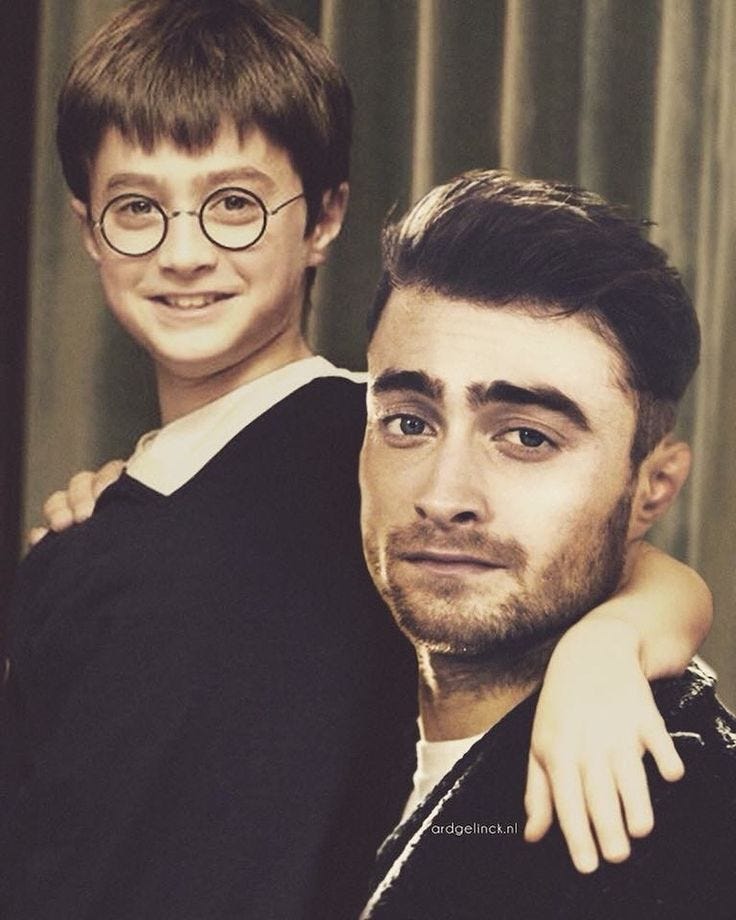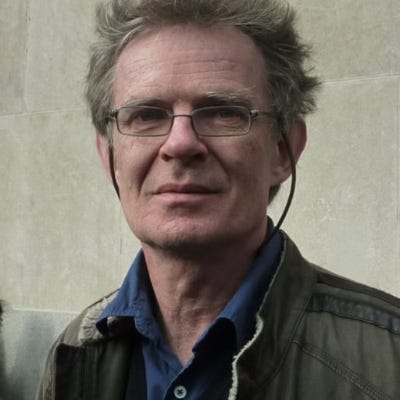Are You the Same You From Your Past?
Is Life Unified or Just a Series of Moments?
Image: Pinterest.com
Cast your mind backward or forward over the course of your life. When you do, how do you perceive the structure of your life?
Do you think of your life as one long story – a story with twists and turns, no doubt, but nevertheless, a continual, singular account?
Or do you view your life's past and future as separate from the life you’re living now – as though the past or future ‘you’ is a different person?
How you answer this question can not only tell you something fundamental about yourself but it can also teach you something about other people who experience life quite differently.
Split personalities
The philosopher Galen Strawson calls the above a distinction between people with a diachronic sense of self versus those with an episodic sense of self.
One way of understanding the difference is that diachronic personality types would be inclined to narrate the various stages of their life as x therefore y, therefore z, and so on. Their life would be seen as something continuous and pertaining to essentially the same person. Episodic types, by contrast, would tend to narrate theirs as x, then y, then z, as they see little fundamental continuity between the various parts and little or no continuity between the person they were at those points in time.
I expect that when you read those descriptions, you instantly felt that one is much more ‘you’ and the other quite strange, perhaps almost incomprehensible. What’s interesting is that people who strongly identify with either one can find the other quite bizarre, but the same is equally true the other way around.
There’s something to be gained, however, from understanding how other people see themselves, as in the process, we can enrich whichever type of life we happen to lead.
Now, not then
Image: Galen Strawson, thepanpsycast.com
Firstly I’ll do my best to explain the episodic type, and what diachronic people like me stand to learn from them. Let’s start with what episodity doesn’t mean, to avoid any confusion.
Clearly, everyone's life has ruptures and gaps. Being asleep is the most obvious kind of gap since – unless I’m lucidly dreaming – I’m not aware that I’m asleep; the time is simply lost to me. But this isn’t what being an episodic personality type means. Nor does it mean that you’re prone to forgetting swathes of your past or that you have some kind of dissociative identity disorder (switching between two or more personalities).
Instead, according to Galen Strawson – a self-declared episodic personality type – it means that “when I am experiencing or apprehending myself as a self, [...] the remoter past or future in question is not my past or future” (‘Against Narrativity,’ p.433).
Now, you might, like me, find this idea very strange. Reassuringly, Strawson does clarify that when he thinks about his past or future he is well aware that it belongs to the human being Galen Strawson. But the person that he is at present feels no sense of identity or continuity with that past or future person. Instead, he recalls, for example, being the teenaged Galen Strawson and, whatever else he feels, has no sense that that person is the past version of the person that he is now.
There’s one way in which I recognise what Strawson describes here: when I see a picture of myself as a baby. I know that that baby is Lewis Coyne, but only because other people tell me he is – I have no actual sense that he is ‘past me.’ The reason for this, of course, is that due to infant amnesia, I have no memories to draw upon that would tie me to that baby version of myself. As soon as I was old enough to have memories, the boy that I then was very much feels like past-me.
Once a diachronic personality type has overcome any bafflement at what being episodic consists of, what could they learn from the latter? The most obvious thing, of course, is that some people evidently have a very different sense of self-identity, and knowing this could make us more understanding of other people and of how they explain and account for themselves.
In addition to this, though, I think there’s an interesting unencumberedness that the episodic person must have in relation to the past and a certain fearlessness that they might have toward the future. They must surely feel more at ease with change and radical novelty than most diachronics – and although it’s unlikely that a diachronic person could do much to become more episodic, they might be able to cultivate a healthy degree of insouciance or openness to change.
Now, because then
Image: David Gilmour, unlocktheguitar.net
Secondly, there’s the diachronic sense of self.
This is much easier for me to describe because I identify with it quite strongly. Indeed, as I’ve indicated, I can’t imagine feeling no sense of affinity with boy-me, adolescent-me, or young-man-me because I do very much feel them all to be past-me. Things admittedly become trickier with future-me because, by definition, I have no memories to draw upon. However, when I imagine myself stooped and wrinkled and bald, I do still expect that that person will be me and that I’ll look back on now-me with a sense of identification.
An account of the diachronic form of living may be better brought to life with a concrete example.
Over the last few weeks, I’ve been listening to Pink Floyd for the first time in over twenty years. When I first got into music as a thirteen-year-old, I not only wanted to hear rock music of the time but also the music of decades gone by. This largely meant a proper exploration of my parents' record collections, and since they’re British baby boomers, I was lucky enough to have at my disposal albums by Led Zeppelin, the Rolling Stones, Fleetwood Mac, and Pink Floyd.
As a thirteen-year-old, I was gripped by Pink Floyd’s musicianship—particularly that of David Gilmour, one of the most tasteful guitarists to ever achieve true greatness with the instrument. (Just check out the spine-tingling guitar solo in ‘Time,’ where each perfectly chosen note sounds like it cost blood to wrench from the instrument.)
Now, though, I’m just as struck by the lyrics of The Dark Side of the Moon and Wish You Were Here, which hit differently when on the cusp of middle age. The themes of birth and death, youth and senility, time, madness, and ambitions, both met and unmet, inevitably resonate more with age. After all, which thirteen-year-old could truly appreciate:
Tired of lying in the sunshine, staying home to watch the rain
And you are young and life is long, and there is time to kill today
And then one day you find ten years have got behind you
No one told you when to run; you missed the starting gun.
Here’s the thing, though: as I listen to Pink Floyd now and enjoy their albums with a newfound appreciation of the lyrics, I do so with the thirteen-year-old me’s enjoyment of the albums in the distant background. It’s as though I approach the albums with layers of enjoyment sedimented upon each other, building through time as I come to the songs at each new stage of life. Not only is this, for me, a mark of a great album, but in doing so, I feel like the music is a yardstick allowing me to measure myself changing and hopefully growing with age.
I wonder if this is something that an episodic person could truly understand, indicating as it does a singular life growing and developing. An episodic person might well find it unbearably oppressive to feel the past bearing down upon the present in this way, but I can only describe it as, on the contrary, enriching the present and making it meaningful. This, then, might be something an episodic person could learn to appreciate about the diachronic form of life.
Whichever personality type you belong to, or if you feel you are somewhere on a spectrum between the two, I think we can learn something from each other. If you’re a diachronic, perhaps you'll integrate that learning into your life story, becoming a person who is more at ease with rupture. And if you’re an episodic personality type—well, hopefully, you’ll be a new and slightly improved person altogether.






